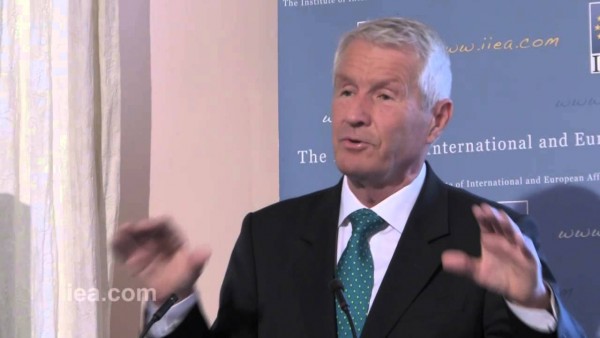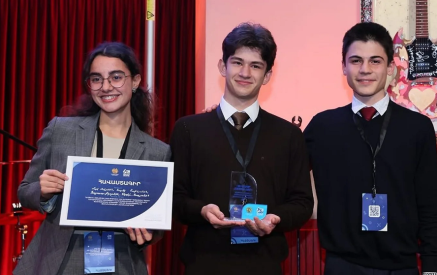In the speech delivered today at the Conference “Minorities and Minority Languages in a Changing Europe” on the occasion of the 20th anniversary of the Framework Convention for the Protection of National Minorities and the European Charter for Regional and Minority Languages, the Secretary General of the Council of Europe Thorbjorn Jagland mentioned Armenia among the countries that have improved access to minority language education in line with the Council of Europe instruments.
“The treaties have confirmed circumstances in which individuals have the right to education in their national language, rather than the language of the nation state in which they live. And Armenia, Poland, and Montenegro are among those that have worked with our Organisation to improve access to minority language education in line with our legal instruments.
Armenia, for example, has made it possible to learn Assyrian, Kurdish and Yezidi in schools where large numbers of these minorities are being taught.
While these states may have more work to do, they have taken valuable steps forward, sometimes despite political pressure and financial constraints.”
Armenia has ratified the Framework Convention for the Protection of National Minorities (FCNM) on July 20, 1998. The latest monitoring report on Armenia published on 1 March 2017 said that a climate of tolerance and dialogue between the majority population and national minority groups generally prevails. It is commendable, the report said, that in spite of economic difficulties, Armenia admitted more than 20,000 people, mainly of Armenian and Assyrian descent fleeing the conflict in Syria.
However, more effort is required to ensure full access to education for all, especially children of the Yezidi national minority where school drop-out rates remain high; and to criminalise forced early marriages conducted under pressure or abuse – the tradition that undermines the chances of girls to complete the compulsory 12-year education cycle. Among other recommendations is introducing a possibility to declare multiple ethnic affiliations in censuses, as well as making racial hatred and other hate motives an aggravating circumstance for all crimes (see more here).
Armenia has ratified the European Charter for Regional or Minority Languages on January 25, 2002. Under the European Charter, Armenia protects Assyrian, German, Greek, Kurdish, Russian, Ukrainian, Yezidi. Thelatest monitoring report published in May 2017 said that Armenia and its inhabitants have a respectful attitude to cultures and languages; its legislation and regulations comply with the country’s obligations in promoting the use of regional and minority languages in public life. However, more needs to be done to raise awareness of the country’s minority languages and cultures, to address the problem of the lack of funds, and to change the attitude of the authorities to protecting the languages (see more here).
The conference is held on 18-19 June under the Croatian Chairmanship of the Committee of Ministers of the Council of Europe; it takes stock of the evolution of the protection of national minorities’ rights and their languages over the past twenty years. Special focus is on the current developments shaping the situation of national minorities and languages, the role of language and education policies in the interplay between minority and official languages, as well as the opportunities offered by technological innovations to persons belonging to minorities.

























































